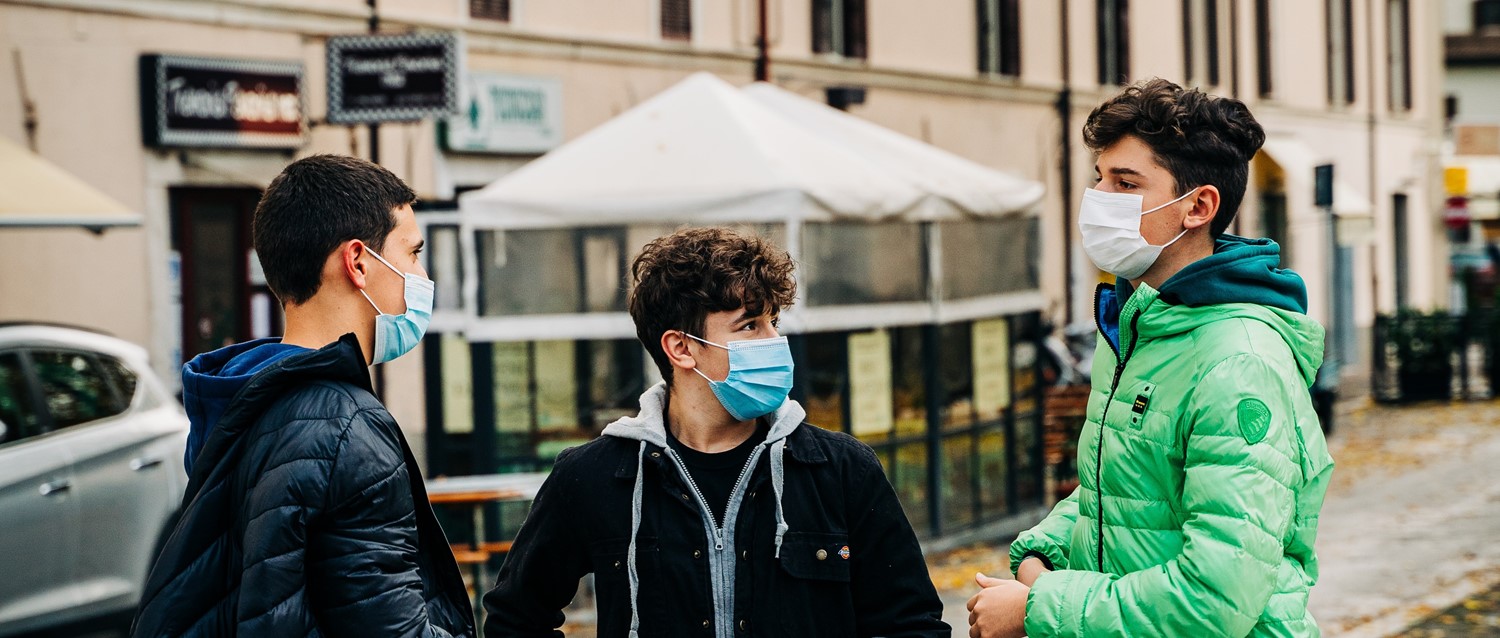
19th July: staying safe as COVID-19 restrictions ease
Peer reviewed by Dr Sarah Jarvis MBE, FRCGPLast updated by Milly EvansLast updated 19 Jul 2021
Meets Patient’s editorial guidelines
- DownloadDownload
- Share
- Language
- Discussion
Despite restrictions easing on 19th July, we are not out of the woods yet. With coronavirus case numbers spiking, we all need to do our bit to keep ourselves and others safe from COVID-19.
In this article:
Video picks for Pandemic articles
Where are we right now?
Despite plans to end virtually all remaining COVID-19 restrictions in England from 19th July, COVID-19 hasn't gone away. Currently there are high levels of the virus circulating in the population, with 50,000 people testing positive each day across the UK and numbers doubling every three weeks. In the week of 5th July, 1 in 95 people in England had COVID-19 compared to 1 in 160 the week before. Scotland's rate was even higher, with 1 in 90 having the virus in the same week.
The government's argument for ending restrictions despite these high levels of the virus is that, despite high case numbers, there have been significantly fewer hospital admissions and deaths compared with previous waves. This is in large part thanks to vaccination efforts which have led to nearly 90% of adults having had their first vaccine and nearly 70% having had their second.
However, people are still dying and becoming seriously ill with COVID-19. Those ending up in hospital are tending to be younger than in previous waves, largely unvaccinated or only having had one jab. And while numbers in hospital are significantly lower than they were in the second wave, they are doubling about every three weeks.
This is filling hospital wards and intensive care units, threatening attempts to deal with the huge 5.3 million NHS waiting list for non-COVID-19 procedures. On 15th July, the Queen Elizabeth Hospital in Birmingham (one of the biggest hospitals in the UK) was forced to cancel all planned operations for two days because of lack of bed capacity.
Even among people who don't end up in hospital and those with mild symptoms, some are experiencing long-lasting symptoms. Long COVID can have a lasting impact on their health and the lifestyle they're able to lead. With tens of thousands of people testing positive each day, more people are experiencing health complications they may not have had before.
Given the dangers of the more transmissible Delta variant, high case numbers and the risks of overwhelming hospitals, doing away with the restrictions which help to prevent transmission has left a lot of us feeling very nervous about what's to come over the next few weeks. Fortunately, there are still things we can all do to keep ourselves and others safe.
Get double vaccinated
Back to contentsOne of the most important things you can do is to get both doses of the COVID-19 vaccination. Whilst the vaccine doesn't offer 100% protection against the virus - no vaccine can - it does reduce the chance of you catching or spreading the virus. If you do contract coronavirus, you're significantly less likely to become seriously ill or die than if you were unvaccinated - the chance of hospital admission at least 2 weeks after two doses of AZ and Pfizer BioNTech vaccines is reduced by 92% and 96% respectively.
Currently, people under 50 are less likely to be fully vaccinated than the rest of the population, in part because vaccine appointments were offered to older and more vulnerable age groups first. There is also less urgency to get vaccinated among people who have so far been less susceptible to the virus.
Unfortunately, many of those who have chosen not to be vaccinated - some of whom have gone on to become seriously ill - have been the victims of misinformation, anti-vaccination efforts and conspiracy theories which have led to them believing that the vaccine is dangerous or unnecessary. These myths are heavily circulating on social media despite hundreds of millions of people having been safely vaccinated and protected against COVID-19.
Vaccination appointments are now available to anyone over the age of 18. Vaccination is fast, safe and effective. You can book your vaccine appointments online through the NHS website. You need to get both doses in order to get the full protection the jab offers: everyone can now book a second vaccine 8 (rather than the previous 12) weeks after their first.
There are some people who are unable to be vaccinated for health reasons despite being at risk from COVID-19. It's important that everyone who is eligible to be vaccinated does so in order to create herd immunity to protect those who are vulnerable to the virus.
Continue reading below
Keep wearing your face mask
Back to contentsThough wearing face masks and coverings will no longer be required by law, the government is recommending that people wear face coverings in crowded places like public transport. Continuing to wear a face mask is a sensible and easy precaution to take to avoid passing COVID-19 to other people. Many establishments, including major supermarket chains, will be continuing to encourage customers to wear face masks.
Scotland and Wales have announced that despite easing of many of their restrictions, wearing of face coverings in some indoor settings, including on public transport, will remain mandatory. Some organisations have announced that face masks will remain compulsory when people use their services, including the Transport for London network and across healthcare settings in the NHS. Face masks should have two layers and fit well over the nose, under the chin and flat against the sides of the face in order to be worn effectively.
On 19th July, the NHS Confederation, along with the British Medical Association, the Academy of Royal Medical Colleges and several charities launched a new campaign, #NotTooMuchToMask. With cases and hospital admissions rising, they aim to highlight the importance of everyone to keep protecting themselves and each other from catching or passing on coronavirus.
Stay at home when you're asked to
Back to contentsIt may feel inconvenient and frustrating but self-isolating is an incredibly important step we can all take to avoid passing the virus on to other people.
If you develop symptoms of COVID-19 - namely a new, continuous cough, a fever or loss of your taste or smell - then you need to self-isolate and stay at home. There is some evidence that the Delta variant presents more like a cold in some people, with a sore throat, headache and runny nose. If you start feeling unwell, stay at home and book a PCR test online. You can have one sent to your home or book to go to a testing site.
You should also self-isolate if anyone in your household has symptoms or tests positive, or if you are told to by Test and Trace. If you haven't already, download the NHS COVID-19 app to your phone. This will allow the app to detect when you have spent time close to someone who has reported a positive COVID-19 test and ro send you a notification if you need to self-isolate or book a PCR test.
If you are told you have to self-isolate, are on a low income and will lose income as a result of staying at home, you can apply for the £500 Test and Trace Support Payment through your local council.
Continue reading below
Spend time with loved ones but take precautions
Back to contentsSpending time with other people is important for our mental health and overall well-being. But catching COVID-19 is sure to put a downer on a fun day with friends. When meeting up with people, take some precautions to stay safe.
Avoid mixing with lots of people, socialising close together or staying together for long periods of time. Spending time outdoors is still the safest way to socialise.
If you can, try to maintain at least a metre or two of distance from people outside of your household or support bubble. Wherever possible, avoid crowded areas where it will be hard to socially distance.
If you do decide to spend time together indoors, opt for rooms with plenty of ventilation, opening doors and windows to let fresh air in.
Get tested
Back to contentsAs well as ordering PCR tests when you have symptoms, it's also a good idea to use lateral flow test kits twice a week. The tests can pick up an asymptomatic infection and give you a result in 30 minutes which can help you avoid unknowingly passing COVID-19 on to anyone else.
You can get lateral flow test kits online or from your pharmacist. You may be able to find a provider near you on Patient Access.
So despite many restrictions becoming optional, there are still measures we can take to stay well and take care of each other. You can find more information on staying healthy during the pandemic in our COVID-19 hub.
Patient picks for Pandemic articles

COVID-19
Can I have routine vaccinations under lockdown?
While we wait for a COVID-19 vaccine, existing immunisation campaigns against the flu and preventable childhood diseases are still available. But how do we get jabs during lockdown?
by Ellie Broughton

COVID-19
How are universities supporting students during the COVID-19 pandemic?
Unsurprisingly, the pandemic has had an enormous impact on students. COVID-19 has meant students have been forced to isolate themselves and do their learning online, usually while paying extremely high university and accommodation fees.
by Lydia Smith
Continue reading below
Article history
The information on this page is peer reviewed by qualified clinicians.
19 Jul 2021 | Latest version

Ask, share, connect.
Browse discussions, ask questions, and share experiences across hundreds of health topics.

Feeling unwell?
Assess your symptoms online for free
Sign up to the Patient newsletter
Your weekly dose of clear, trustworthy health advice - written to help you feel informed, confident and in control.
By subscribing you accept our Privacy Policy. You can unsubscribe at any time. We never sell your data.